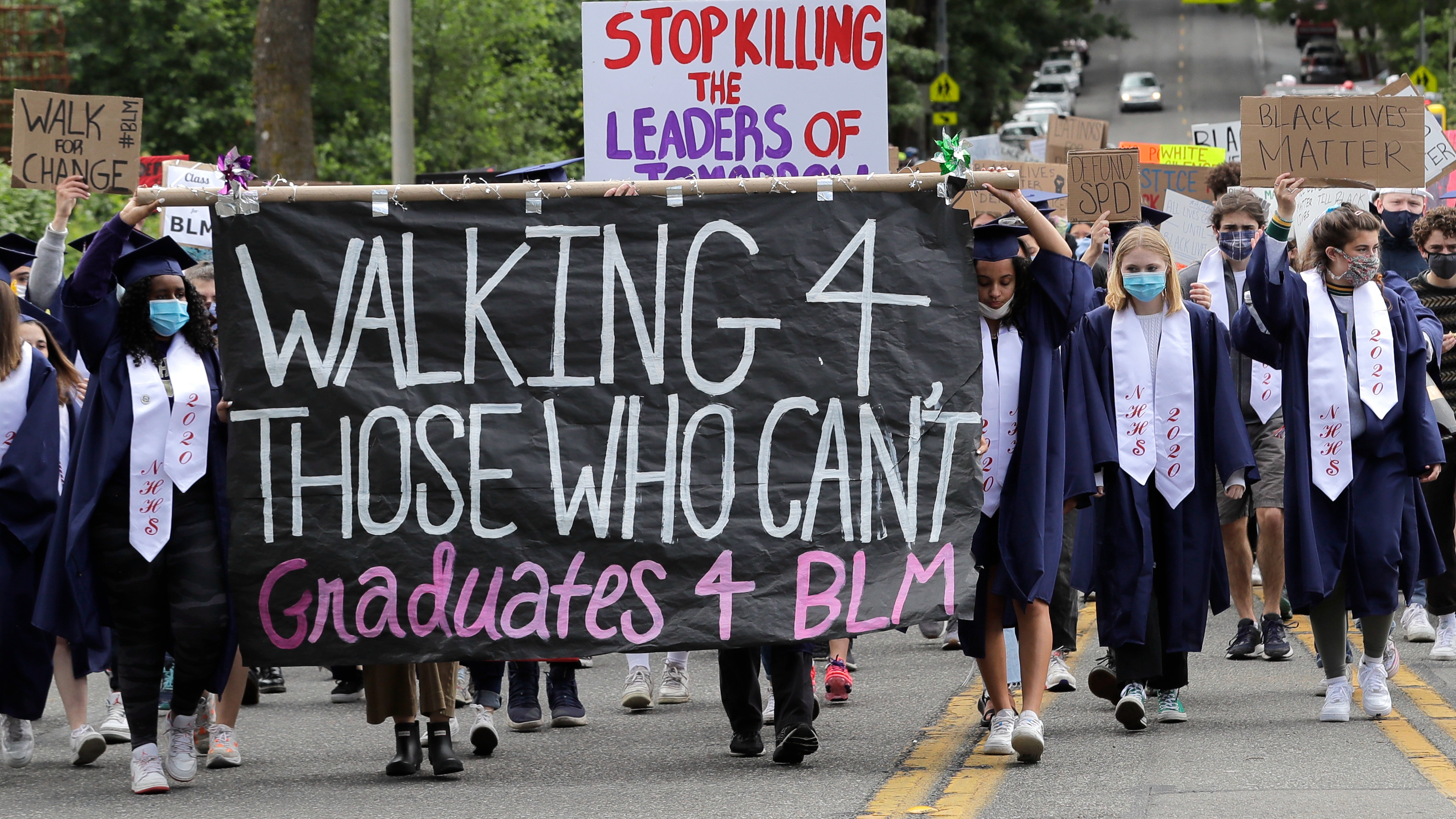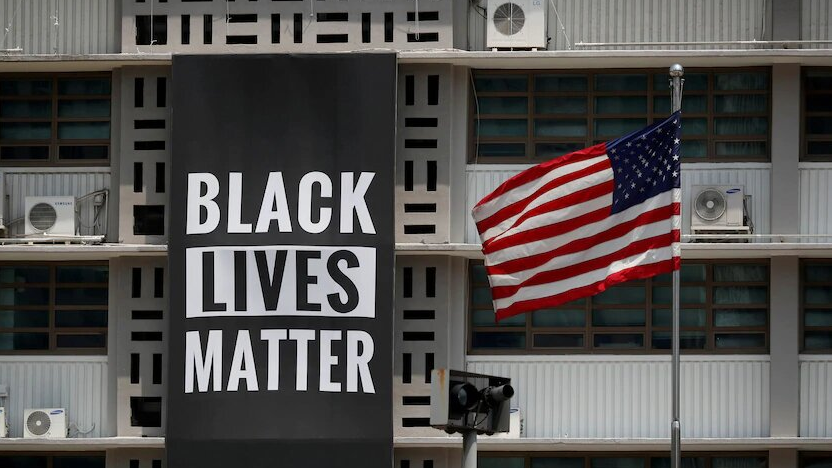
Graduates of Nathan Hale High School and other schools wear caps and gowns as they take part in a Black Lives Matter march, Seattle, U.S., June 15, 2020. /AP
Graduates of Nathan Hale High School and other schools wear caps and gowns as they take part in a Black Lives Matter march, Seattle, U.S., June 15, 2020. /AP
Editor's note: Adriel Kasonta is a London-based political risk consultant and lawyer of Jewish and Tanzanian descent. Alfred de Zayas is a professor of international law at the Geneva School of Diplomacy in Switzerland. The article reflects the authors' opinions and not necessarily the views of CGTN.
We know that race issues in the U.S. are not going well when the UN publishes a report spurred by the murder of an African American man called George Floyd and titles it "Promotion and protection of the human rights and fundamental freedoms of Africans and of people of African descent against excessive use of force and other human rights violations by law enforcement officers."
While the UN's High Commissioner for Human Rights Michelle Bachelet urged the U.S. in her press commentary following the publication to make "transformative change for racial justice and equality," she also made a valid point by arguing that the current "status quo is untenable."
What Bachelet also rightly observed is that "systemic racism needs a systemic response" – the part which seems to be much easier to be said than actually done.
According to a recent analysis of residential segregation in the U.S., published by the Othering & Belonging Institute at the University of California-Berkeley, residential segregation is the "the deep root cause" of systemic racial inequality in the country, which although it has become more diverse, has also become more racially segregated.
As the study found, more than 80 percent of large metropolitan areas in the U.S. were more segregated in 2019 than they were in 1990, with the highest levels of segregation in the north-east and Midwest of the country. The most segregated metropolitan area in the U.S., according to the study, was New York City, followed by Chicago, Milwaukee and Detroit.
In most of these places, people tend to be clustered in segregated neighborhoods, which leads to their "ghettoization" and further deepening of social and economic divisions – something that may turn into violent civil unrest in the future.
The COVID-19 pandemic only amplified the consequences of residential segregation, as Black Americans living in segregated cities like Detroit and Chicago died at a higher rate than people of other races in the same cities, Brookings' non-resident senior fellow John C. Austin noted early last year.
To make things clear, structural racism is not about racial prejudice, but about the system and national habitat in which we exist. Segregation is not about separating people on the basis of their skin color, but separating them from resources based on their skin color.
"It's not a mystery: where you live determines everything, (like) your proximity to jobs, the quality of your environment, where you go to school, whether you're surveyed and harassed by the police," Stephen Menendian, the lead author of the Othering & Belonging Institute's report, said in an interview with The Guardian.
The Black Lives Matter movement has enhanced the visibility of the problem, without however proposing durable solutions. Indeed, part of the problem is the skewed education that generations of Americans have been subjected to.

Liberating ourselves from racist habits, which sometimes are second-nature, will take a considerable amount of time. On the other hand, an orgy of self-deprecation helps no one and actually demeans both whites and Afro-Americans.
Already in 1964, Dr. Martin Luther King Jr. wrote a book titled "Why we can't wait," in which he said some truths are yet to be absorbed by the mainstream media, by schools and universities. If we want to live without violence in our multi-ethnic, multi-religious, multi-linguistic American society, we must know more about each other and learn to appreciate and respect each other – not just "tolerate" each other.
"Our nation was born in genocide when it embraced the doctrine that the original American, the Indian, was an inferior race," wrote one of the most well-known African-American freedom fighters in history. He added that "even before there were large numbers of Negroes on our shores, the scar of racial hatred had already disfigured colonial society."
This is a very revealing, multi-faceted statement, which strongly resonates with the UN report's findings that racism is most prevalent in countries linked to the former trade of an estimated 25-30 million Africans for enslavement or colonialism, most importantly the U.S.
The narrative we get in school and in popular culture is that the U.S. is a modern-day multicultural and multi-ethnic western society worth emulating, yet the recent findings contradict these popular assumptions.
In order to achieve this noble and crucial survival goal for the U.S., "there needs to be a comprehensive rather than a piecemeal approach to dismantling systems entrenched in centuries of discrimination and violence," as Bachelet argued. In her view, "we need a transformative approach that tackles the interconnected areas that drive racism, and lead to repeated, wholly avoidable, tragedies like the death of George Floyd."
To begin with, U.S. policymakers would be well advised to pay attention to reforming land use regulations at state and federal level, with an eye on implementing zoning reform to tackle the superficially race-neutral mechanisms enabling segregation – a practice unworthy of a civilized and diverse nation that intends to promote and defend human rights abroad.
(If you want to contribute and have specific expertise, please contact us at opinions@cgtn.com.)

